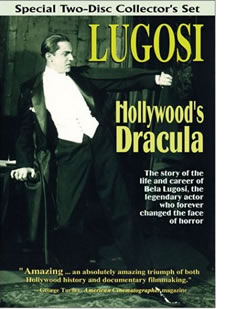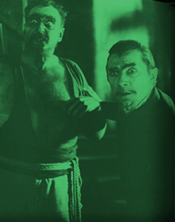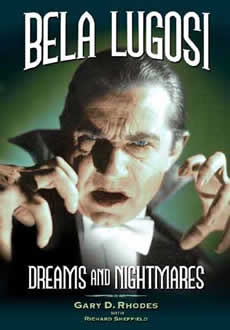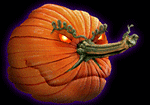
"What's the matter?" Zimba asked.
"My muse is not amused today," I said. I sipped my third Dunkaccino in my doldrums, and sharpened a few more pencils. I had been alternately doodling and sipping, trying to get my story down on paper; or, at this stage, anything down on paper.
"There's more to writing than just waiting for inspiration, you know."
"I know. But it's so hard trying to juggle time, things that need to get done, and writing. Like juggling balls, it's easy to get them into the air and not so easy keeping them there. To make matters worse, you have writers like Jonathan Maberry blithely juggling literary rings, non-ficion pins, and graphic novel buzz-saws while taking bites out of an apple, all at the same time. It's demoralizing." I took a long sip of my Dunkaccino.
"Jonathan Maberry?"
"He wrote Ghost Road Blues, a first novel that's already received a preliminary Bram Stoker Award nomination. Makes me sick." I took a hopeful sip from my empty Dunkaccino cup. Damn things are never big enough.
"Well, why don't you just ask him how he does it," she said.
"You can't just go and bother a writer because—"
"Why not? It's easy. Just click your pencils together three times and say "There's no writing like my writing, there's no writing like my writing, there's no..."
I looked at her. She was serious. I clicked my pencils together and repeated those words. In a poof of light and smoke Jonathan Maberry appeared.
"Damn, not again! You neophyte writers are a pain in my — what? Oh, sorry." He adjusted the bath towel around his waist.
Zimba exhaled.
"Well, I see you two have lots to talk about." She left the room with rosy cheeks.
I was speechless.
"Well?" Maberry said, toweling-off his hair. "I'm waiting. Make it snappy."
With the Ghost Road Blues trilogy, the Joe Ledger series, other fiction and non-fiction books written or in the works, comic books, teaching duties, and an 8th degree black belt in jujutsu, how do you do it? Lots of coffee?
I never sleep. No, actually I multi-task well and I plan things out before I do them. Unlike a lot of novelists, my background is in journalism rather than creative writing. At Temple U I learned the reporter’s trade--get your hook, do your research fast, writing quickly, always nail your deadline, and move on. I don’t believe in writer’s block--I think that’s an excuse for poor planning or a lack of discipline. If it existed, reporters would be telling their editors that “the muse just isn’t with me today”...and the next day they’d be working at McDonalds.
Real pros write, and they write every day. They set goals and meet them. This doesn’t mean, however, that they have less passion or less of an appreciation for the more artistic aspects of writing, it’s just that they can get the job done. I have a lot of friends who are professional writers, and they all pretty much agree.
On the other hand, sometimes time evaporates and I feel like I’m driving three cars at once. Aside from writing a novel a year, I also write one or more nonfiction books a year, I write articles, I’m writing a pilot episode for a TV series; and I own or co-own a few businesses.
I’m a founding partner of the Writers Corner USA (in Doylestown, PA), which is a writers education center, and I teach a bunch of classes there--which I love; I’m co-founder of The Wild River Review, a literary e-zine, and I just wrote a long serial feature on the ‘thriller genre’, which included interviews with Lawrence Blocks, Steve Hamilton, Barry Eisler, and others; I own Career Doctor for Writers, which provides editorial, proofing and career counseling for writers; and I’m president and chief-instructor for COP-Safe, which provides cuff-and-arrest and risk management workshops for law enforcement. I sit on a couple of boards — Philadelphia Writers Conference, etc.; and I’m the president of the New Jersey/Pennsylvania Chapter of the Horror Writers Association.
So...where do I find the time? The real answer is that I have no freaking idea. Stuff gets done and I stay happy doing it. Coffee and meditation help a lot.
What's Ghost Road Blues about, and why is it shaking up the Bram Stoker Awards?
The success of Ghost Road Blues took me a little off guard. After thirty years as a magazine and nonfic book writer I took a shot at a novel--a trilogy of novels, actually--and hoped it would have at least modest success. I’d never written book length fiction before and simply sat down and wrote the kind of book I would read. I love epic stories, I love stories with ensemble casts, I love exploring the psychological cause and effect of ordinary people in extraordinary circumstances. Fiction allows me to explore that.
Ghost Road Blues has racked up something like 107 Amazon reviews, of which nearly 100 are 5-star. Publishers Weekly compared it to Stephen King, and even though I don’t think I write like King, that was a helluva nice thing for them to say.
I think some of its success comes from my public appearances. I have so much fun with the horror genre, and people tell me that they love my enthusiasm and passion. When I do a talk or appear at a signing, I don’t just sit there and blab about my books...I talk about the whole genre, about the marvelous books--both classic and recent--that keep horror vital and alive.
Having the book recommended for two Stokers--Novel and First Novel--floored me. It absolutely floored me. I had no idea that I’d get even a single recommendation, and yet at the end of the initial phase I was in first place for recs for First Novel, and sixth in Novel! If I make it all the way to the official ‘Nomination’ phase, which happens around the middle of February, I think I have my strongest shot in First Novel. But even if I don’t win...just being included in the short list is a real buzz. I’ve read all of the other books, and I don’t see them as ‘competing’ books. These are books by friends and people I really admire. It’s excellent company no matter what happens, and we’ve all been joking that the winner has to buy the others the first round of drinks at the Stoker Banquet.
Why do you use the horror genre as your writing voice?
Horror allows me to take the brakes off. Horror isn’t safe and writing shouldn’t be safe. In horror you can address the darkest, most dangerous parts of the human heart, and that’s where you learn about the true nature of each character. Some of our most profound pieces of literature have used the supernatural as a vehicle for telling stories of great cultural, literary, or psychological worth. Shakespeare loved the supernatural — The Tempest, Midsummer Night’s Dream, Hamlet, Macbeth; Dickens’ A Christmas Carol is a pretty damn scary ghost story; Dracula and Frankenstein are enduring classics. Go back further and look at Dante and Milton, at Homer. Monsters, ghosts, demons. Most people want to believe in a larger world; and even for those who don’t, the horror format allows you a structure for telling a tale that otherwise readers might not try.
You see the same thing in SF and fantasy. The Twilight Zone and Star Trek were really morality tales, social or political commentary, even farces about the human condition--and if they had been done as straight dramas on TV would we even have watched them, let alone remember them all these decades later?
There is such a grand tradition of horror writers speaking in a voice that is unafraid of telling the truth about what goes on in the twisting corridors of the human mind. Richard Matheson’s I Am Legend tells you just about anything you’ll ever need to know about how we deceive ourselves by accepting the propaganda that supports our biased vision of the world; The Haunting of Hill House by Shirley Jackson is a short course on the dynamics of psychological disintegration; Bradbury’s Something Wicked This Way Comes speaks eloquently about the devastating effect of the choices we make, and about the ordinary heroism latent in the human soul. The list goes on.
Sadly, in recent years horror’s gotten a bad rap. All of the major publishers, including the one that does my books—Pinnacle--have stopped using ‘horror’ on the spines. They’ve started calling their books ‘fiction’. Stephen King, Dean Koontz, Peter Straub are known as ‘suspense’ writers. Maybe it’s backlash because of torture-based films like Saw and the spate of slasher films we had over the last couple of decades, the whole industry has been labeled as trash. That’s amazingly unfair...especially since most of the slasher flicks were not written by horror writers, or even writers of adequate literary chops. When a real writer takes a shot at writing something like a serial killer story you get a Silence of the Lambs.
I’m going to rant a bit here, so bear with me. When real horror writers--whether they call themselves that or not--take a popular genre and give it their all, you get books that can stand as literature by anyone’s standards. You want a ghost story? Try The Shining, or Matheson’s Stir of Echoes; Wither by John Passarella, or Peter Straub’s Ghost Story.
You want to read about the social and psychological effects of the apocalypse, a genre with a lot of great books, take a look at The Stand, Robert McCammon’s Swan Song, Cormac McCarthy’s The Road.
You want a good monster tale that actually has story rather than just shock? Pick up Charles Grant’s The Pet, Phantoms by Dean Koontz, Hellbound Heart by Clive Barker.
There are marvelous cross-genre works, like the Repairman Jack novels by F. Paul Wilson, and the mysteries with a touch of the supernatural that John Connolly and Peter Straub write with such elegance and insight.
Novels about culture clash? Try Dan Simmons’ The Song of Kali or Iain Banks’ The Wasp Factory.
Or, how about coming of age? That genre doesn’t begin and end with To Kill a Mockingbird and Catcher in the Rye. Take another look at The Body by Stephen King, A Boy’s Life by McCammon, Anansi Boys by Neil Gaiman, and Bradbury’s Something Wicked this Way Comes and Dandelion Wine.
We even have slasher stories that strike right to the heart--Red Dragon and Silence of the Lambs by Thomas Harris; and Jack Ketchum’s legendary Off Season.
And this is just scratching the surface. For every book and writer I just named there are dozens and dozens of others in the horror genre who have written-- and are still writing--books of literary merit that also display deep insight, subtlety, and the power to both encourage and compel deeper thought on the part of the reader. Horror does this because to a large degree that’s what horror literature is all about.
"Hey, these Dunkaccinos are good," Maberry said, sipping his second cup. Glenor was kind enough to make a sustenance-run for us. "You could raise the heat, too, you know. I'm freezing my ass off." He pulled the towel tight around his waist as I turned up the thermostat. "Now where were we?"
 Rain, rain everywhere, and not a drop to drink. Rain, rain everywhere, and all the roads did shrink. At least that's the way it felt as Zombos and I hustled along the Cross Bronx Expressway in a mad attempt to reach Chiller Theatre Expo before the dealer's rooms closed. It was raining heavily, and we were making slow progress over to New Jersey. Even the New Jersey drivers were driving with caution in the deluge. (Note to self: check list of signs of the coming apocalypse. I believe 'New Jersey drivers driving cautiously' falls between 'when hell freezes over', and 'belief that global warming is as real as Big Foot'.)
Rain, rain everywhere, and not a drop to drink. Rain, rain everywhere, and all the roads did shrink. At least that's the way it felt as Zombos and I hustled along the Cross Bronx Expressway in a mad attempt to reach Chiller Theatre Expo before the dealer's rooms closed. It was raining heavily, and we were making slow progress over to New Jersey. Even the New Jersey drivers were driving with caution in the deluge. (Note to self: check list of signs of the coming apocalypse. I believe 'New Jersey drivers driving cautiously' falls between 'when hell freezes over', and 'belief that global warming is as real as Big Foot'.)
 Vince A. Liaguno's The Literary Six is strangers meeting on a (terror) train. Think April Fool's Day meets The Secret History from fiction. And, like all good strangers, once these two get together, there's blood. Think Happy Birthday to Me or My Bloody Valentine or Prom Night or any of the other slasher-by-numbers from the Golden Age of Freddy and Jason and Michael, but don't (though you'll be tempted) try to shove this book into your VCR. Instead just let it play in your head, and with your head, and if you can keep from grinning, then you're a better person than me. As Liaguno shows us with this impressive debut, the slasher is far from dead - it isn't even tired yet. - Stephen Graham Jones, Demon Theory
Vince A. Liaguno's The Literary Six is strangers meeting on a (terror) train. Think April Fool's Day meets The Secret History from fiction. And, like all good strangers, once these two get together, there's blood. Think Happy Birthday to Me or My Bloody Valentine or Prom Night or any of the other slasher-by-numbers from the Golden Age of Freddy and Jason and Michael, but don't (though you'll be tempted) try to shove this book into your VCR. Instead just let it play in your head, and with your head, and if you can keep from grinning, then you're a better person than me. As Liaguno shows us with this impressive debut, the slasher is far from dead - it isn't even tired yet. - Stephen Graham Jones, Demon Theory Like I said, I really fell hard for the slasher films of the early eighties. I’m not sure if it was the comfort of the formula that I found appealing or what it was, but these films captivated me. There was something primal about the terror, maybe because the onscreen horror could translate so easily into real-life that made these films frightening.
Like I said, I really fell hard for the slasher films of the early eighties. I’m not sure if it was the comfort of the formula that I found appealing or what it was, but these films captivated me. There was something primal about the terror, maybe because the onscreen horror could translate so easily into real-life that made these films frightening. I’m juggling work on the novel with my gig as a contributing editor at a small national magazine — for which I get to interview and write about some of my favorite celebs — and a weekly e-column called Slasher Speak: The Murderous Articulations of Vince Liagunoat the queer horror site, Unspeakable Horror, where I write book and film reviews, commentaries, nostalgic retrospectives on some of the great slasher films, and the occasional ruminations on Jamie Lee Curtis.
I’m juggling work on the novel with my gig as a contributing editor at a small national magazine — for which I get to interview and write about some of my favorite celebs — and a weekly e-column called Slasher Speak: The Murderous Articulations of Vince Liagunoat the queer horror site, Unspeakable Horror, where I write book and film reviews, commentaries, nostalgic retrospectives on some of the great slasher films, and the occasional ruminations on Jamie Lee Curtis.


 Zombos Says: Poor
Zombos Says: Poor  Zombos Says: Very Good
Zombos Says: Very Good In the Deleted Scenes section, you will find more film footage and discussion on White Zombie (one of his creepiest performances) and Lugosi's Poverty Row films of the 1930s. From Murder Legendre in White Zombie, to Ygor in Son of Frankenstein, Lugosi's performances were always masterful and uniquely different, and created memorable characters in horror cinema.
In the Deleted Scenes section, you will find more film footage and discussion on White Zombie (one of his creepiest performances) and Lugosi's Poverty Row films of the 1930s. From Murder Legendre in White Zombie, to Ygor in Son of Frankenstein, Lugosi's performances were always masterful and uniquely different, and created memorable characters in horror cinema.






